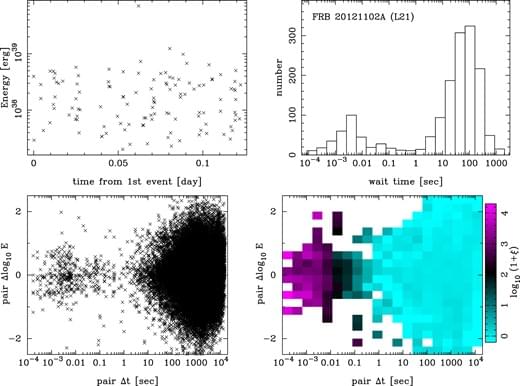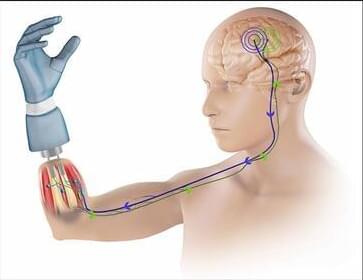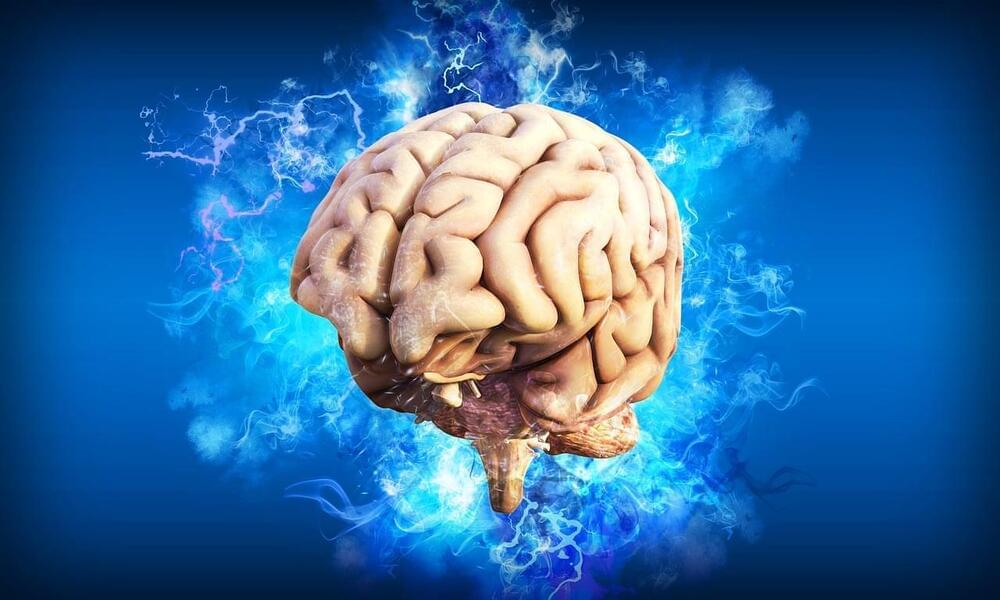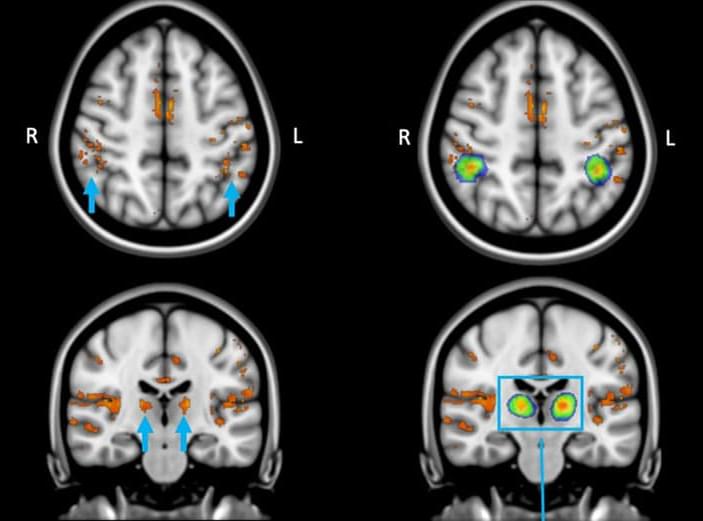ABSTRACT. The production mechanism of repeating fast radio bursts (FRBs) is still a mystery, and correlations between burst occurrence times and energies may provide important clues to elucidate it. While time correlation studies of FRBs have been mainly performed using wait time distributions, here we report the results of a correlation function analysis of repeating FRBs in the 2D space of time and energy. We analyse nearly 7,000 bursts reported in the literature for the three most active sources of FRB 20121102A, 20201124A, and 20220912A, and find the following characteristics that are universal in the three sources. A clear power-law signal of the correlation function is seen, extending to the typical burst duration (∼ 10 msec) towards shorter time intervals (Δt). The correlation function indicates that every single burst has about a 10–60 per cent chance of producing an aftershock at a rate decaying by a power law as ∝ (Δt)−p with p = 1.5–2.5, like the Omori–Utsu law of earthquakes. The correlated aftershock rate is stable regardless of source activity changes, and there is no correlation between emitted energy and Δt. We demonstrate that all these properties are quantitatively common to earthquakes, but different from solar flares in many aspects, by applying the same analysis method for the data on these phenomena. These results suggest that repeater FRBs are a phenomenon in which energy stored in rigid neutron star crusts is released by seismic activity. This may provide a new opportunity for future studies to explore the physical properties of the neutron star crust.








